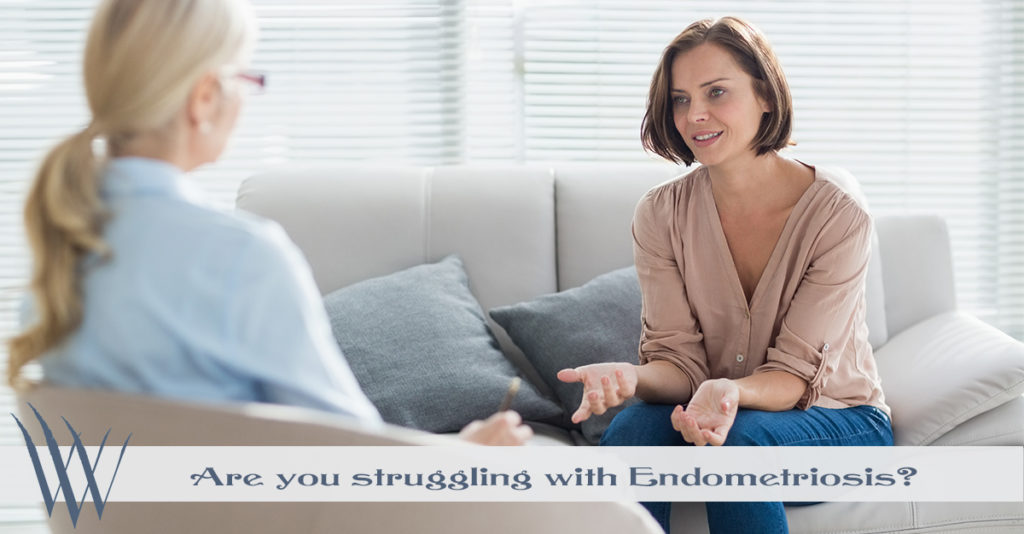Endometriosis is a painful, chronic disease that affects over 6 million women and girls in the United States and millions more worldwide.
Endometriosis is a condition in which the type of tissue that forms the lining of the uterus (the endometrium) is found outside the uterus. It occurs in about one in ten women of reproductive age. It is most often diagnosed in women in their 30s and 40s.
Endometriosis implants respond to changes in estrogen, a female hormone. The implants may grow and bleed like the uterine lining does during the menstrual cycle. Surrounding tissue can become irritated, inflamed, and swollen. The breakdown and bleeding of this tissue each month also can cause scar tissue, called adhesions, to form. Sometimes adhesions can cause organs to stick together. The bleeding, inflammation, and scarring can cause pain, especially before and during menstruation.
The most common symptom of endometriosis is chronic (long-term) pelvic pain, especially just before and during the menstrual period. Although, some women with endometriosis may not have any symptoms at all.
The most common symptoms reported are:
– Pain before and during periods
– Pain with sex
– Infertility
– Fatigue
– Painful urination during periods
– Painful bowel movements during periods
– Other Gastrointestinal upsets such as diarrhea, constipation, nausea.
Diagnosis is considered uncertain until proven by laparoscopy, a minor surgical procedure done under anesthesia. A laparoscopy usually shows the location, size, and extent of the growths. This helps the doctor and patient make better treatment choices.
Treatment for endometriosis depends on the extent of the disease, your symptoms, and whether you want to have children. Endometriosis may be treated with medication, surgery, or both. When pain is the primary problem, medication usually is tried first.
Endometriosis can be a challenging condition to manage. An early diagnosis, a multidisciplinary medical team and an understanding of your diagnosis may result in better management of your symptoms. See your doctor if you have signs and symptoms that may indicate endometriosis.
You can find more information on Endometriosis here: http://www.acog.org/Patients/FAQs/Endometriosis or request an appointment with The Woman’s Group using our online Appointment Request form here.


Comments (3)
My obgyn just retired and I am looking for a new one that specializes in endometriosis treatment. I am very close to the Land O Lakes location and am wondering if they are accepting new patients.
Hi Kayla, we are accepting new patients at Land O’Lakes and we would love to have you join our practice family. All our doctors have experience in this area. You can request an appointment with any doctor at Land O’Lakes on our appointment request form. Please feel free to add your comments and wishes in the form. We know it’s hard to lose a trusted physician and look forward to meeting you.
I was wondering if you were accepting new patients? I underwent surgery last Monday and the doctor was unable to perform the surgery she stated that she has never seen a case this severe.